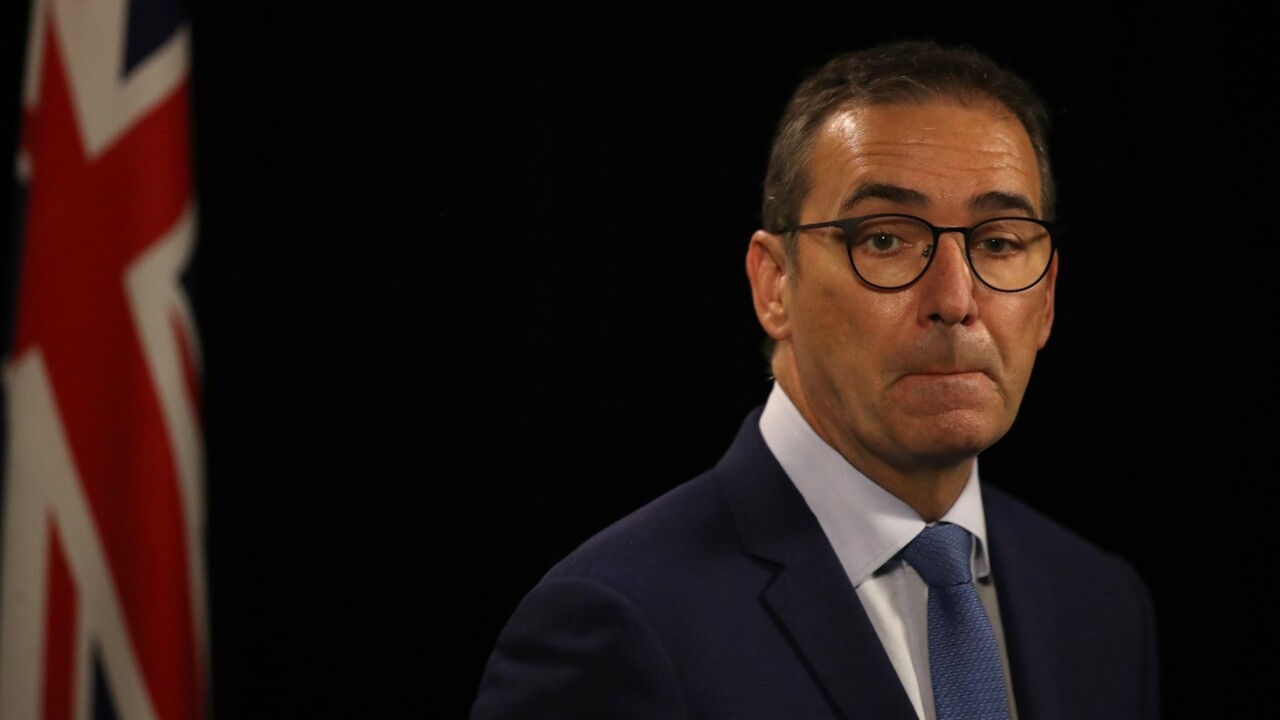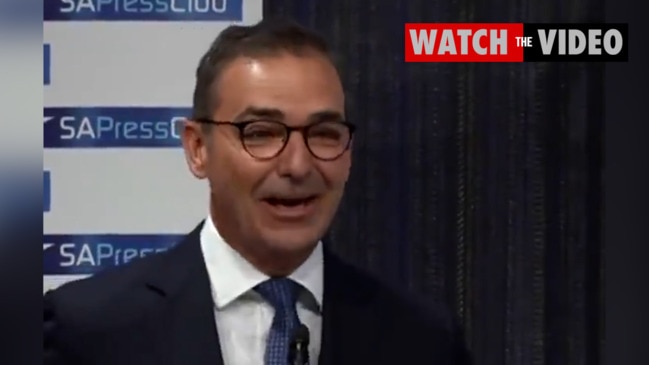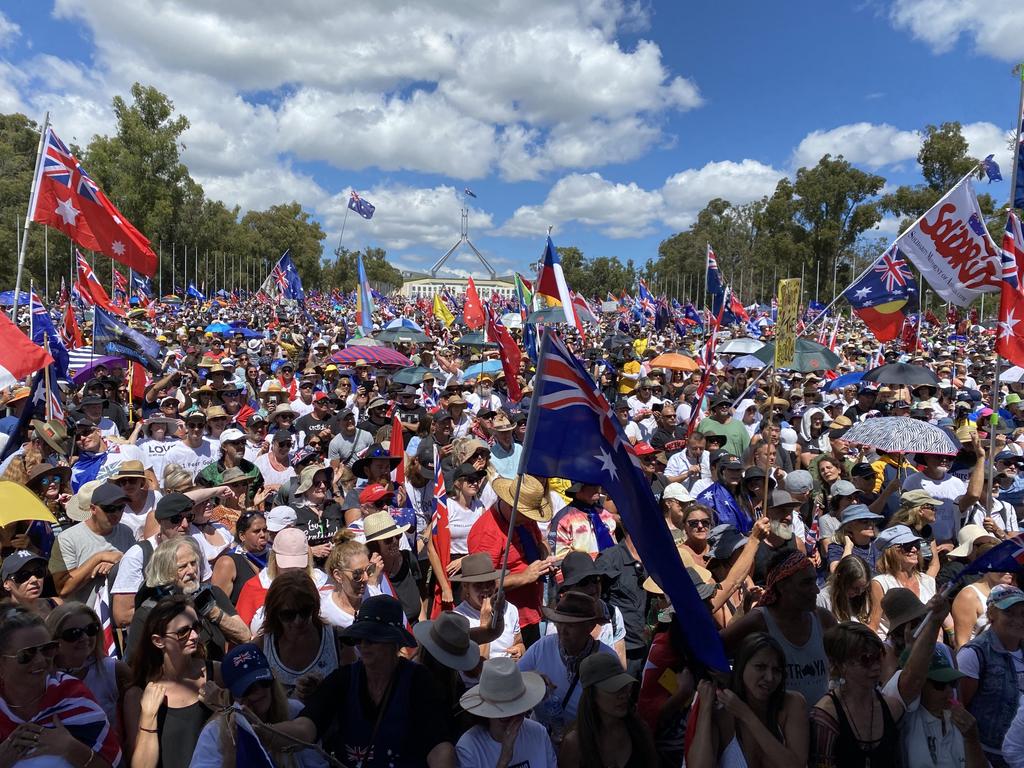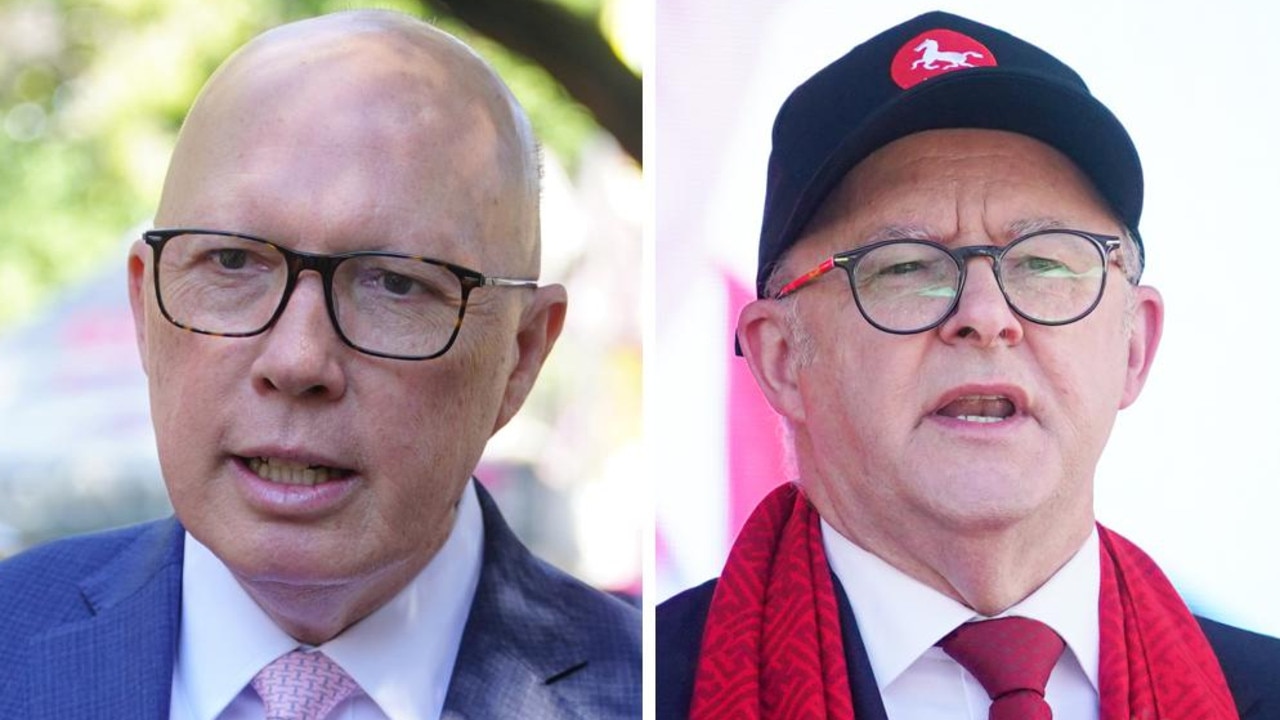Steven Marshall staring down the barrel of defeat
South Australian premier Steven Marshall will need a miracle if he is to hold on to power next week.

South Australian Premier Steven Marshall needs a miracle week if he’s to hold on to power due to a collapse in his primary vote after reopening the borders and the bleeding of federal issues into the state election campaign.
The most senior members of the government have been warned that unless there is a dramatic turnaround in sentiment in the next week Mr Marshall will lose on March 19, with community anger over the way the state was reopened late last year and ongoing virus anxiety still driving the backlash.
Ominously for the federal government, Scott Morrison is seen privately as a significant drag for a section of voters in SA, who will refuse to vote for Mr Marshall simply because of their distaste for the Prime Minister, sources said.
Labor and Liberal polling is telling a consistent story that an election held during the campaign so far would have handed Labor power, with one government figure saying the Liberal numbers are stubbornly bad.
“The numbers are ugly. If they hold it’s going to be really ugly on election night,” they said.
Because of the redistribution and the high margins in many Liberal seats, a strong swing to Labor might not deliver a large number of seats, although on current polling Labor would win with a majority in the 47-seat parliament.
There is believed to be strong support for independent candidates, but the contradiction is that there is also an appetite being shown for majority government rather than a hung parliament, government sources said.
Despite the voter anger towards the Marshall government, the government does not believe that Mr Marshall is viewed as a massive negative, with his numbers suggesting he is a “net positive”.

“We are not dead yet but it will have to be an amazing turnaround. Things will need to be going on with people that haven’t shown up in the polling,” a senior MP said.
Labor’s private polling is showing that health remains the number one issue when factoring in the pandemic and debate about ambulance ramping and the state of the hospitals.
The Liberal Party believes that Labor leader Peter Malinauskas’s strong standing this year – bolstered by the pandemic anger – has whitewashed many of the negatives of the years of Labor rule before Mr Marshall won in 2018.
After a redistribution and defections, the government notionally has 23 seats in the 47 seat lower house.
Labor notionally holds 20 seats and the Liberal Party holds four seats by 2 per cent or less. They are Newland, King, Adelaide and Elder. The safe Liberal seats of Davenport (8.1 per cent) and Stuart (11.1 per cent) have been cited as potentially vulnerable, along with Black (9.4 per cent).
There are several independents who could be critical in any hung parliament when attempts are made to form government.
The state of the post-redistribution pendulum means that Labor could achieve a massive swing but still only just scrape back into office, which is what is encouraging Mr Marshall.
Sources said the key to the collapse in the Liberal primary vote was the reopening last November. While the state has, by global and national standards, weathered the Covid storm, people remain angry about the spread of Omicron.
Mr Marshall told The Weekend Australian this week that he did not believe the community had tuned in to the election. Asked if he would reopen again in November if he had his time over, he said: “Yes. I think people have got to be very careful and almost sceptical about polling numbers now. I think this election is going to go to the wire.
“I think the electorate is volatile. They want to move beyond Covid so there is a special challenge for a government that has been incumbent during a coronavirus to present the recovery from that.”
Federal Labor leader Anthony Albanese is also believed to have a relatively poor standing in the state, according to the Liberal Party, indicating that unhappiness in the SA community is broad.
A Labor source said there was confidence the party would win despite the pendulum making it difficult for a large majority. “We can get really big swings but it’s where the swings fall that really matters,” the MP said.





